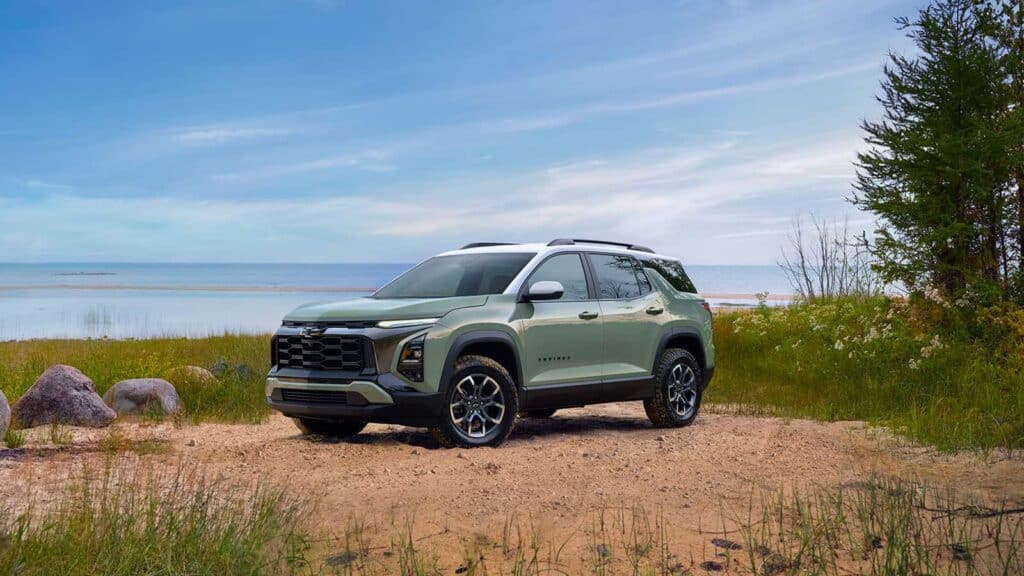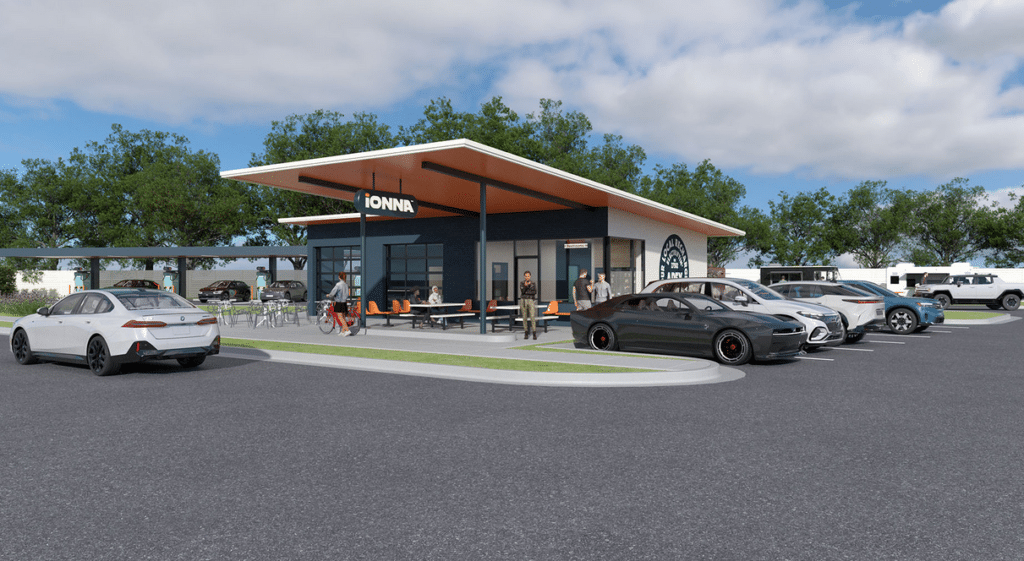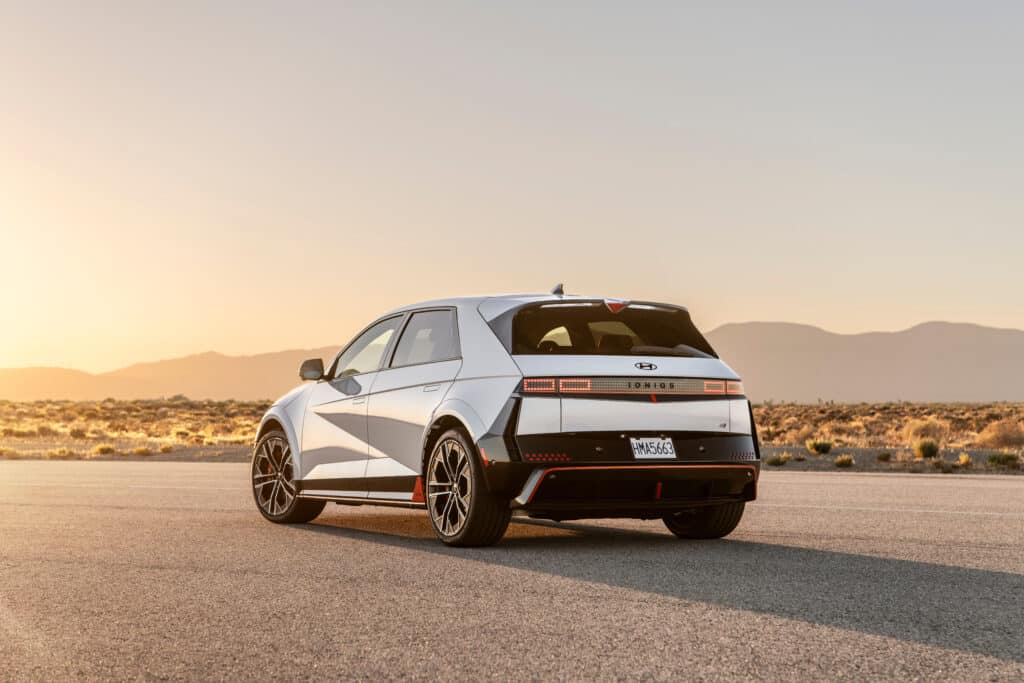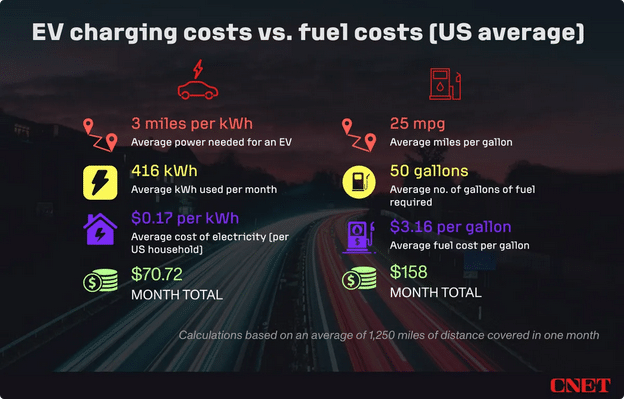New Study Says 47% of Americans Plan to Purchase an EV in the Next 5 Years
Verra Mobility Corporation, a trailblazer in smart mobility technology, recently unveiled its “State of EVs: 2025 Report on Smart Mobility.” Released on January 28, the report sheds light on American consumers’ attitudes toward electric vehicles (EVs), offering insights into purchasing intentions, perceptions on maintenance and safety, and the evolving landscape of electric mobility.
A standout takeaway from the survey is that 47% of Americans surveyed plan to purchase an electric vehicle in the next five years, indicating a growing interest in cleaner, cheaper to own, and more sustainable transportation options. More specifically, 21% of respondents are eyeing an EV purchase within the next 1-2 years, highlighting that the momentum for EV adoption is quickly gaining speed.
While these numbers point toward a positive shift in consumer attitudes, there is still some distance to go. Currently, only 7% of those surveyed report owning an electric vehicle, signaling that adoption rates, though growing, remain relatively modest. This presents both an opportunity and a challenge for the EV industry, which must continue working on educating consumers and addressing key concerns.
The full report can be downloaded at: www.verramobility.com/the-state-of-evs-2025-smart-mobility-report.
“Although there have been market indications that EV adoption rates are slowing down, our analysis indicates steady, albeit more cautious adoption and interest,” said Steve Lalla, executive vice president of Commercial Services at Verra Mobility. “Our survey results echo what we have been seeing and hearing for the last year as we work with customers representing cities, rental car companies, fleets and vehicle OEMs. The overall message we continue to hear is ‘it’s not if, but when’ EVs will constitute a much more significant share of vehicles on the road.”

American consumers’ EV purchasing plans support results from additional research conducted by Verra Mobility. The research found that 48% of municipal technology leaders expected EVs to make up the majority of personal vehicles within 10 years. According to recent data from Edmunds, EVs made up 8.5% of vehicles sold in mid-2024 in the U.S, highlighting the lightning speed at which EV adoption is moving in America.
Top Concerns: Charging, Range Anxiety and High Prices
While interest in electric vehicles is shooting up like a rocket, the survey results reveal that range anxiety, high prices, and the availability of charging stations are still the top barriers preventing many consumers from fully committing to EV ownership.
When asked about their biggest concerns with owning or driving an EV, 46% of respondents cited the availability of charging stations as a major issue. This was the most common concern by a significant margin, with 31% expressing worries about the upfront cost of purchasing an EV.
In a related finding, 40% of consumers admitted that they were unaware of the closest charging station to their home, with many indicating that they had “no clue how to find one.” This lack of knowledge points to an ongoing challenge for the EV industry: making charging infrastructure as accessible and well-known as gas stations.
Another notable concern is range anxiety, with 71% of respondents admitting they would feel anxious about the idea of driving an EV. This represents a slight improvement over last year’s results, where 79% of respondents expressed similar worries. Even with this decrease, range anxiety remains a significant obstacle for the EV market.

Solutions to Charging, Range Anxiety and High Prices
IONNA is one of the leading, highly commendable companies solving the EV charging availability barrier. The company was founded by eight of the world’s top automakers: BMW, General Motors, Honda, Hyundai, Mercedes-Benz, Kia, Stellantis and Toyota. In October, the company announced they have broken ground on the first IONNA ‘Rechargery.’ in Apex, NC.
Another well-respected charging leader, XLR8 America, announced a goal to install 30,000 EV charging ports across the US by 2027. The company offers an innovative Charging as a Service (CaaS) business model, which allows users to pay for charging services on a flexible, pay-per-use basis.
“The EV revolution isn’t coming; it’s here. We’re seeing unprecedented growth in EV adoption, and XLR8 America is committed to providing the charging infrastructure necessary to support this electrifying shift,” said Founder Frank O’Connor, CEO of XLR8 America.
Thanks to heroic efforts like these and others, EVinfo.net expects the 71% of respondents feeling range anxiety to decrease soon.
With the reported 40% of consumers unaware of the closest charging station to their home, consumer education plays a vital role. Two valiant nonprofits working on this important barrier are Forth and Veloz.
With 31% expressing worries in the report about the upfront cost of purchasing an EV, the report reveals a significant problem with high vehicle prices. EVinfo.net advocates frequently for lower vehicle prices, as we feel strongly that lower prices will drive new EV sales in America on the road to mass EV adoption.
Motortrend’s William Irvin Lewis reported on the top ten cheapest new EVs in America:
Cheapest New Electric Cars for 2025
1. 2025 Nissan Leaf | $29,280
2. 2025 Mini Cooper Electric | $33,050 (MT est.)
3. 2025 Hyundai Kona Electric | $34,270
4. 2025 Fiat 500e | $34,345 (MT est.)
5. 2025 Chevrolet Equinox EV | $34,995
6. 2025 Volvo EX30 | $36,145
7. 2025 Hyundai Ioniq 6 | $38,900
8. 2025 Kia Niro EV | $40,600 (MT est.)
9. 2025 Nissan Ariya | $41, 500 (MT est.)
10. 2025 Volkswagen ID4 | $41,760 (MT est.)
These models, although being low cost, are all good quality and will be great for everyday driving. If considering the Nissan Leaf, remember that the Leaf’s CHAdeMO charging standard is being equipped on very few new cars sold in North America or Europe, and can be hard to find at public charging stations.
Out of these top ten models, our favorites at EVinfo.net are the Hyundai, Kia, and Chevrolet (GM) models.

Maintenance and Safety Perceptions
While many are willing to embrace electric vehicles under the right conditions, misinformation about maintenance costs and safety concerns still cloud the decision-making process for many.
In Verra Mobility’s report, 63% of respondents expect maintenance costs for EVs to be higher than those of gas-powered vehicles. This perception, likely rooted in unfamiliarity with the long-term costs of EV ownership, could deter potential buyers, especially in a market where consumers are increasingly conscious of total cost of ownership.
A study conducted by Atlas Public Policy showed that EVs will save owners thousands when compared to gasoline internal combustion engine counterparts. The study, conducted on behalf of NRDC (Natural Resources Defense Council), showed that for every major type of vehicle, owning an EV will save car owners money over a seven-year span, the average amount of time a driver keeps a new vehicle.
Two of the major factors in the calculations are that maintenance costs of EVs are significantly lower than gas vehicles, due to far fewer moving parts in EVs. Additionally, the cost of electricity, even at the highest levels, is cheaper than gasoline, even at the lowest levels, in all fifty states. CNET completed a detailed analysis showing a monthly EV charging vs. gasoline fuel cost of $70.72 for EVs, and a much higher $158 for gas vehicles.

42% of respondents in the study believe their chances of needing roadside assistance would be higher with an EV than a gas-powered vehicle. This reflects lingering concerns about the reliability of electric vehicles compared to traditional cars. EVinfo.net believes these concerns are unfounded.
Political Influence
The survey also explored the influence of political events on consumers’ likelihood to purchase an EV. When asked about how the disappointing results of the 2024 presidential election might affect their decision to buy an electric vehicle, only 15% of respondents said they were more likely to purchase an EV within the next four years due to the election outcomes. This indicates that, while political factors may have some influence, they are not the dominant drivers in EV purchase decisions for most consumers. EVinfo.net recommends the Democratic party, the party that supports EV adoption the most.
When asked if they were more or less likely to buy an EV compared to the previous year, the responses were somewhat split. While 31% of respondents said they were more likely to purchase an EV, 24% indicated they were less likely, and 46% stated their intentions remained unchanged. These mixed responses suggest that while there is growing interest in EVs, many consumers are still hesitant, either due to concerns over cost, unfamiliarity with the technology, or the availability of charging infrastructure.
Survey Methodology
The data used in the report was derived from a survey by Verra Mobility conducted online via Pollfish on November 15, 2024. 2,000 Americans aged 25 and over completed the survey.
All decimals that were used in the report are rounded to the nearest percentage point, which may lead to certain numerical totals adding up to slightly more or less than 100%.
This report is the second consumer survey conducted by Verra Mobility and Pollfish. “The State of EVs: 2023 Smart Mobility Survey” can be found here.
Significant Challenges Remain
Ultimately, Verra Mobility’s report reveals that while the demand for electric vehicles is certainly on the rise, there are still significant challenges that need to be addressed for the EV market to reach its full potential. Range anxiety and the availability of charging stations remain the top barriers to EV adoption, but a significant portion of consumers are ready to embrace EVs once these concerns are alleviated. Education, improved infrastructure, and a focus on reducing the upfront cost of EVs will be key to driving mass adoption.
As the market continues to evolve and more consumers become familiar with the benefits of EVs, it’s clear that the future of transportation will be increasingly electric. The next few years will be crucial in determining how quickly these barriers can be overcome and how the transition to sustainable, smart mobility can become a seamless part of everyday life for American consumers. It is very important that EV advocates and professionals step up efforts to protect EV adoption, in the face of growing opposition to progress for cleaner air, a healthier environment, and lower prices for drivers.
The report revealed many barriers still remain to EV adoption in America. However, all of the barriers are being worked on and improved every quarter, by passionate EV professionals around the US and around the world. EVinfo.net reports truthfully about all of the barriers, to ease the transition for early EV adopters, as we drive faster down the road to mass EV adoption in the US.
Clearly, EVs are the future of transportation. If you agree, fight hard to support. Big Oil and its allies are stepping up opposition to EVs in unprecedented ways.

Electric Vehicle Marketing Consultant, Writer and Editor. Publisher EVinfo.net.
Services